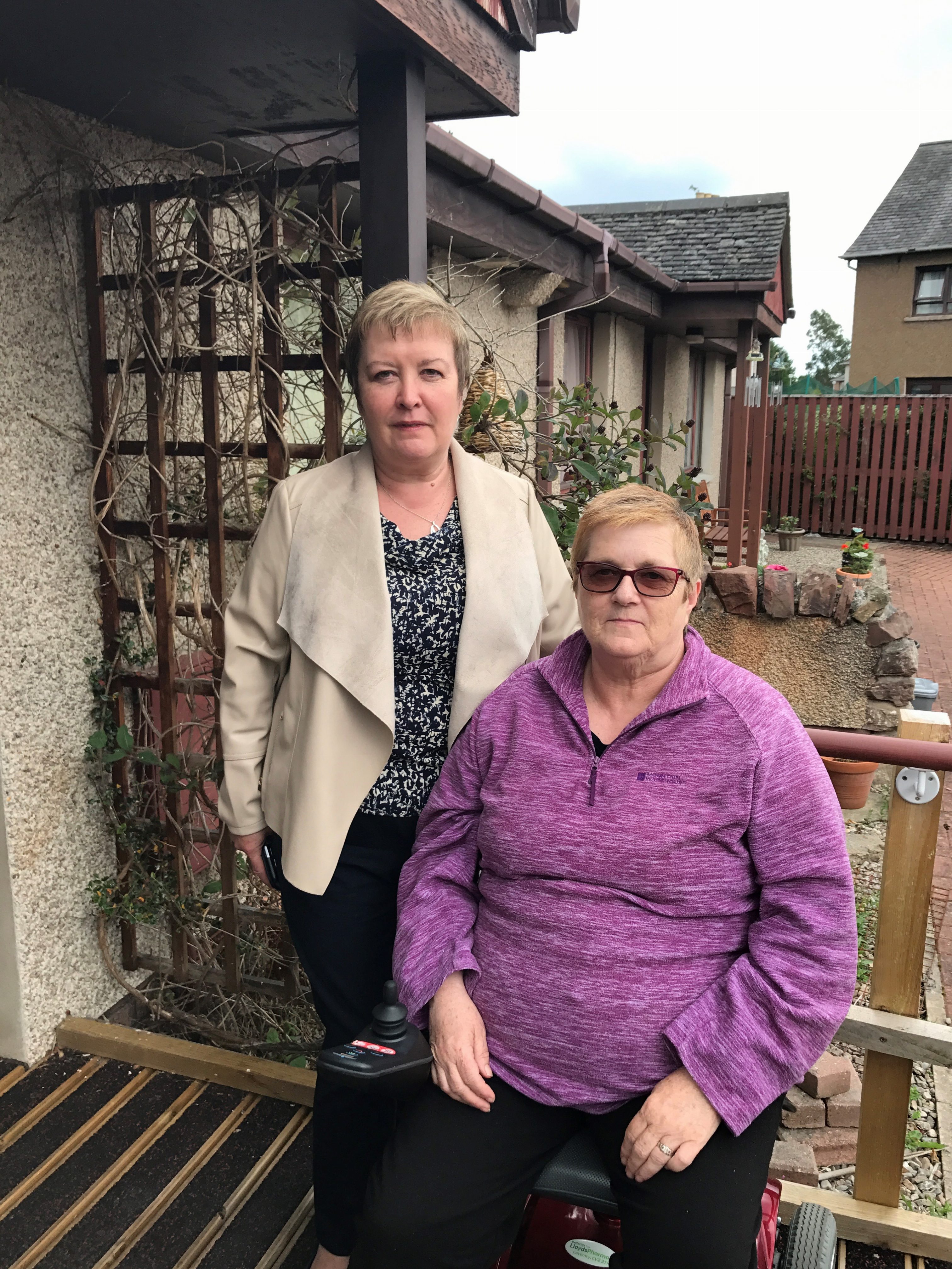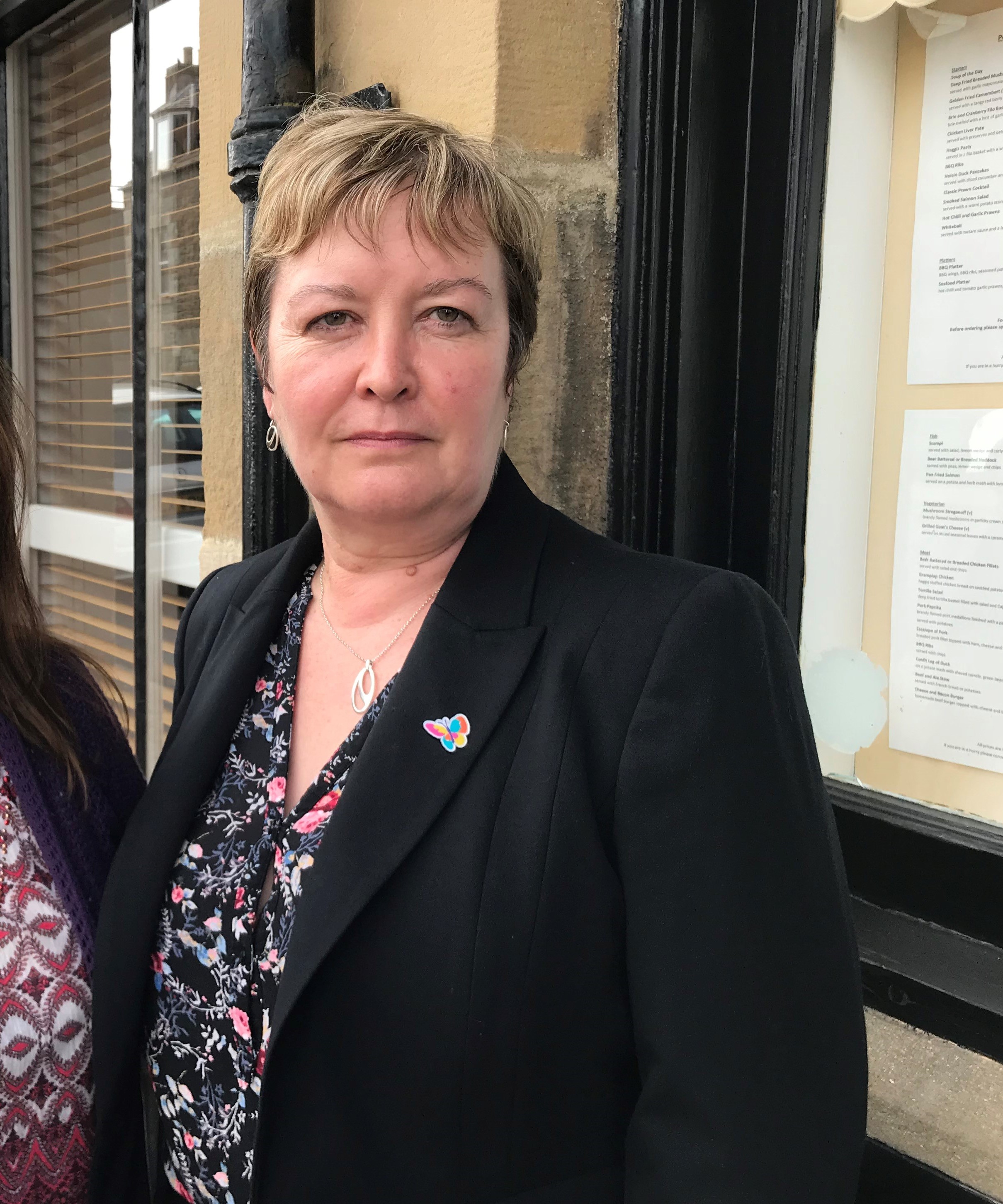Highland health campaigner Mary Ramsay and MSP Rhoda Grant are calling for Scottish patients to have the same access as English patients to a new treatment for Essential Tremor.
Mrs Ramsay’s petition will again be heard by the Scottish Parliament’s Public Petitions Committee on Wednesday next week (December 9) when Consultant Neurosurgeon Professor Dipankar Nandi, a leading medical expert in his field, is due to speak on the ground-breaking technology.
The committee will also view a short video of a patient’s experience of the treatment.
Mrs Ramsay, who has Essential Tremor, has petitioned the Scottish Government to back the provision of magnetic resonance-guided focused ultrasound (MRgFUS) technology within the health service in Scotland.
However, NHS Scotland has previously rejected funding based on its interpretation of the evidence and NICE guidance. But NHS England has now agreed to fund the technology based on the same evidence and 16 other countries worldwide already use it.
Mrs Ramsay, Chair of the Scottish Tremor Society, has campaigned for many years for the new treatment to help others with the condition.
She has been supported along the way by Mrs Grant, who represents the Highlands and Islands, and local members of Inclusion Scotland.
“What I really want to know is the Scottish Government’s view on access for patients here, now that treatment has been given approval in England and is now endorsed by NHS England,” said Mrs Ramsay, who lives in Dalneigh, Inverness.
Mrs Grant added: “It would be a great pity if something that could improve the quality of life for thousands of people is only available south of the border and Scottish patients are left out in the cold. It has also been proved to save money which is an added bonus considering our country’s current cash strapped situation.”
Focus ultrasound is non-invasive and uses MRI imaging to guide high powered, focused ultrasound to a very small point. At that point, molecules are vibrated extremely quickly, which creates intense local heat which destroys the tissue. The technology allows clinicians to target a very specific focal point – with very little heating produced in front of and behind that point, so only the targeted tissue is affected.
The Public Petitions Committee previously agreed that the treatment had benefits and went back to the Scottish Government to ask why a decision has stalled, what was needed to achieve the introduction of the treatment and what the timescales were.
It is estimated that there could be 4000 people in Scotland with Essential Tremor. The main treatment at the moment is brain surgery or deep brain stimulation (DBS), where electrodes are inserted into the brain. Some people with the condition do not want to endure the operation and DBS is expensive. The focus equipment is cheaper and is also a much less invasive procedure.
Mrs Ramsay, who will be watching the committee virtually from her home, has had DBS. Her condition causes involuntary and rhythmic shaking and can affect almost any part of the body. She would not benefit from the ultra sound treatment but is passionate that others could.
- Rhoda Grant achieved cross-party support for a Scottish Parliament debate on Mary’s campaign in 2018.
- Fundraising for the equipment is being run by the University of Dundee.
- Essential Tremor [ET] has no known cause. It is most common in the elderly but two-thirds in a recent survey developed symptoms of ET before the age of 50. ET affects both sexes and all ethnic groups and children.
- People with ET may be so embarrassed by their tremor that they do not leave their home and become depressed. This embarrassment may impact on jobs and income. As many as 25% of patients are forced to retire prematurely, and in one study 60% said they had chosen not to apply for a job or promotion because of uncontrollable shaking. In a recent UK survey by the National Tremor Foundation, almost 20% of respondents had to stop working completely, 7% had to change occupation, and 6% had to reduce their working hours
- At present, the only non-pharmacological treatment for severe tremor that is having an unacceptable effect on someone’s quality of life is deep brain stimulation (DBS): as DBS is invasive surgery in which wires are permanently inserted into the brain, some people are not suitable for it because of other diseases (comorbidities) and some do not feel able to consent to a procedure which involves permanent implants and lifelong supervision.


